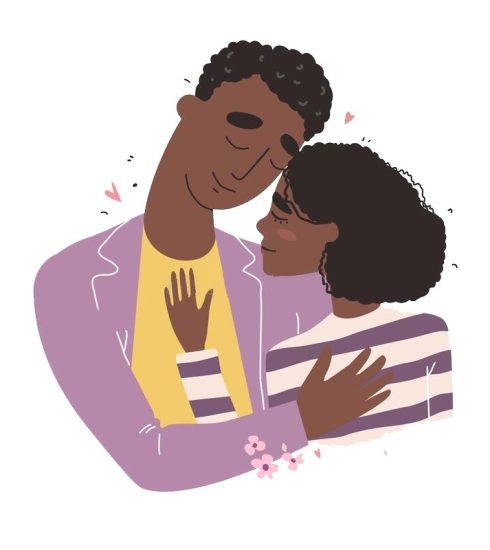5 Signs of Unhealthy Emotional Attachment in Relationships
In a good relationship, friendship, growth, and joy can be experienced, whereas strain, insecurity, and dissatisfaction can result from an unhealthy emotional attachment. It’s acceptable to be emotionally attached to someone, but there’s a thin line separating healthy and toxic relationships. Unhealthy attachment has the potential to harm the well-being of both spouses if it is ignored. The following five indicators suggest that your relationship is suffering from unhealthy attachment.

(1) CONSTANT NEED FOR REASSURANCE
When you have an unhealthy emotional attachment, you frequently require continuous comfort from your lover. “Do you love me?” or “Are we okay?” may be questions you ask all the time. You feel nervous or uneasy about where you stand, even when there’s no need for concern. It can be draining for both partners in a relationship to always feel validated. The foundation of a strong relationship is trust, not endless questions to feel secure.

(2) LOSING YOUR OWN IDENTITY
An unhealthy attachment may exist if you put your partner’s needs above your interests, hobbies, or social time. You can start to lose sight of who you are outside of the relationship or feel you must participate in everything your partner does. In a healthy relationship, both individuals retain their uniqueness as they grow together. Having a distinct identity and life is important.

(3) FEAR OF BEING ALONE
The fear of being alone is a clear indicator of unhealthy attachment. If the idea of being apart from your partner, even for a brief while, makes you feel scared or apprehensive, it can mean that you depend too much on them for emotional stability. Both partners should be able to spend time apart in a healthy relationship without experiencing anxiety or uneasiness. Having a balanced relationship requires being at ease in one’s own company.

(4) OBSESSIVE THOUGHTS ABOUT YOUR PARTNER
Thinking about your spouse all the time, even when you should be concentrating on other things like your job, school, or personal goals, is a common sign of unhealthy attachment. If you find yourself thinking about your spouse all the time, checking your phone for messages, or wondering what they’re up to, it could be an addiction rather than love. Good relationships give people the mental room to concentrate on other facets of life without becoming consumed by their partner.

(5) EMOTIONAL DEPENDENCY
When you’re emotionally reliant on someone, your pleasure and mood are determined by how they treat you or how much time they spend with you. You experience happiness when they show affection and sadness when they don’t. You and your spouse may get exhausted from this emotional rollercoaster. While emotional support is necessary for a healthy relationship, it shouldn’t be your only source of happiness. You should be able to have security and happiness in your own life.

CONCLUSION
Unhealthy attachments can cause anxiety, tension, and an uneven relationship where one partner feels stifled and the other feels insecure. Early detection of these symptoms can assist you in resolving the problems and pursuing a happier, more satisfying relationship. Remember that mutual respect, trust, and individuality are the foundation of a healthy relationship. It’s critical to feel safe in your relationship and within yourself.

Dorcas Akintoye is a versatile writer with a passion for beauty, fashion, relationships, and culinary delight. With a keen eye for detail and a passion for storytelling, she adds a touch of elegance to every topic she explores. She is a writer at THEWILL DOWNTOWN.






